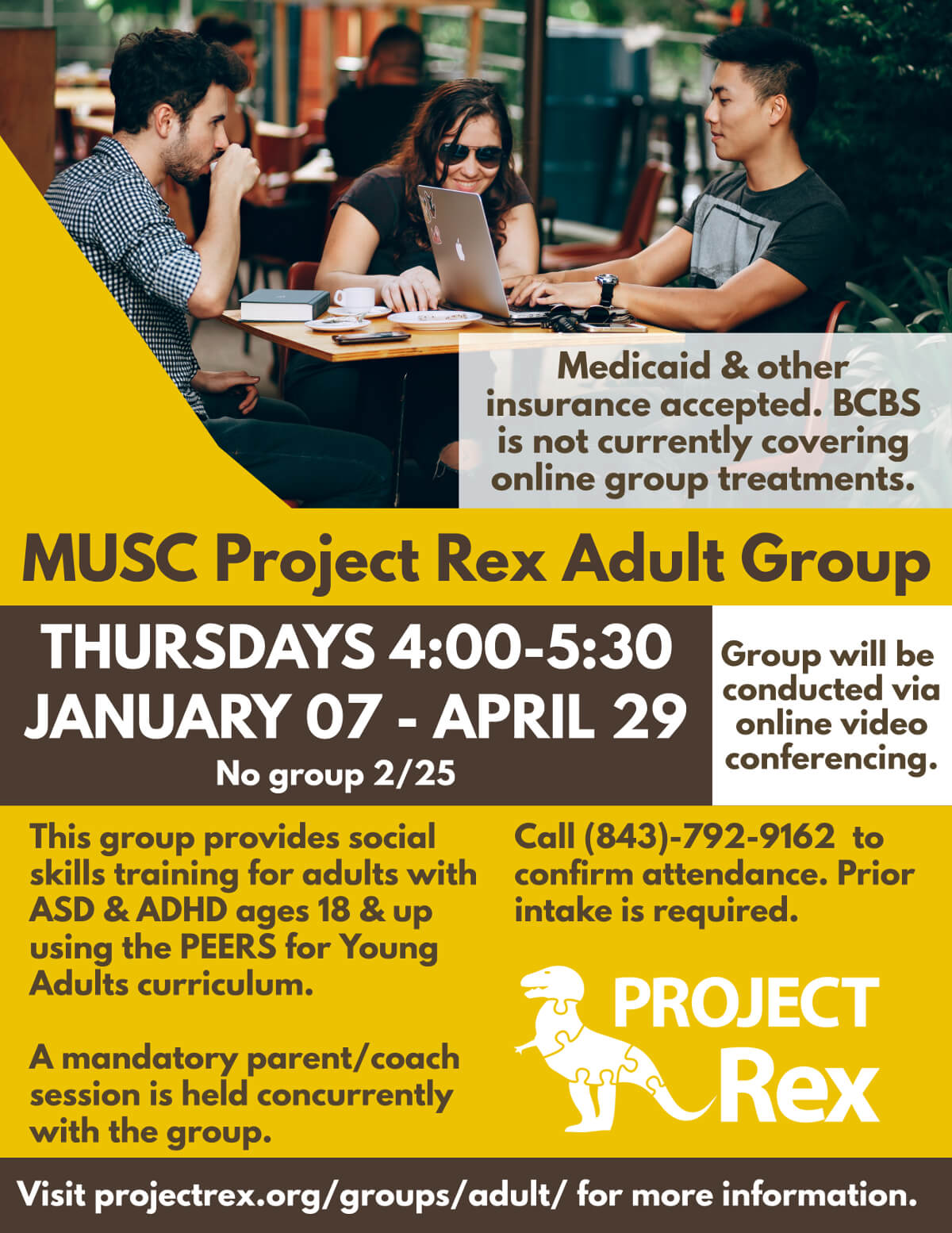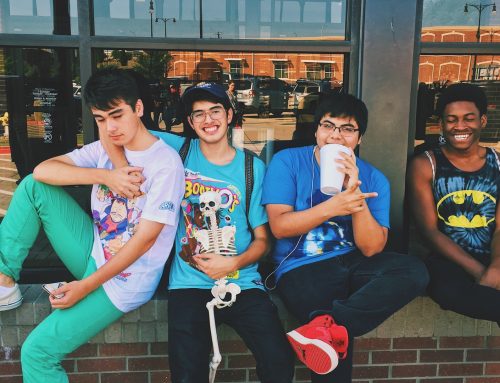The Project Rex virtual Adult Group will be meeting via online video conferencing Thursdays from 4:00 – 5:30 PM beginning January 7th 2021 and continuing through April 29th. (No group 2/25.)
Group Registration
To schedule an intake, call (843) 792-9162 and request a Project Rex Assessment. Participants must meet with James Truelove, M.S.W., before participating in the group.
Once the intake is complete, call (843) 792-9162 to confirm attendance in the group series. Medicaid and most insurance is accepted, though BCBS is not currently covering online group treatments.
Interested patients and family must commit to being able to attend each group session. We can no longer allow patients and family members to join the group after the first week. We ask if you know you cannot commit to the full 8 week series to instead consider attending a future round of the program. Thanks for your continued support and cooperation as we work with all insurances to ensure that our programs remains available to all participants.
Questions about signing up? Check out our Frequently-Asked Questions page.
The Structure of Adult Rex
Classes are offered based upon need. Ideally, we welcome 8-10 socially motivated adult participants and their individual social coaches to attend each session of the four-month series. This maximizes group discussions, exercises, and assignment reviews.
What Does it Mean to Be Socially Motivated?
Socially motivated adults with autism and/or ADHD are …
– Interested and driven to learn the skills involved in developing new social relationships; willing to venture out within their local community and find social groups with similar social interests
– Be able to focus, discuss, and process a weekly 30-45 minute cognitive lesson on the social skills topic of the week
– Willing to review and practice the weekly social lesson with their coaches; willing to allow their coaches to discreetly observe their efforts and offer honest feedback
– Prepared to practice skills in group each week through practical exercises
– Prepared to practice skills with fellow group members through weekly phone and video chats and report back to group on their efforts to engage in two-way conversations for the first 5 weeks
– Willing to work with coaches to find and begin attending a social networking group.
(Note that this happens outside of the Rex Group. Adult Group is not the place where participants will find friends. Instead, they will be expected to join a community social group and approach people with whom to form friendships. If they already attend activities in the community all the better; they can continue the activity and increase their socialization in that environment.)
A Note on Mood Issues and Stability
To fully benefit from what the program has to offer, a patient’s needs related to anxiety or depression should be addressed and stabilized prior to participating.
When mood issues are addressed and supported prior to beginning the lessons, the adult will be able to reach their full potential in the program. Mood issues are part of the required initial assessment, and they may require a second session to explore fully.
Who Are The Coaches?
Adults who live at home without a regularly scheduled socialization outlet or means of transporting themselves to Group will require a coach to assist.
The role of coach has been well documented and researched in the PEERS program for young adults and corresponding literature.
Coaches can be parents, siblings, friends, or other family members. (Though there is no extra charge if more than one family member attends, there must be only one identified coach for each participant.)
A Coach Must …
– Make same commitment as the adult group member; attending all sessions of the Group program
– Have a cooperative, supportive relationship with the adult participant
– Be willing and able to give honest feedback of a positive and constructive nature regarding the individual’s efforts to practice social skills in their natural environment
– Either live with the adult participant or live nearby (so that the coach can participate actively, and observe socializations discreetly in order to give feedback)
What’s the Difference Between the Past and Present Adult Group?
In brief, the past Adult Group represented our team’s revision and expansion of the UCLA PEERS for teens program. It contained many of the same teen lessons, but with additional skills and rules to better meet the needs of adults.
To keep the Group curriculum research-supported, various Project Rex team members and past Project Rex graduate students researched social topics in areas such as humor, conflict resolution, electronic communication, and planning get-togethers.



